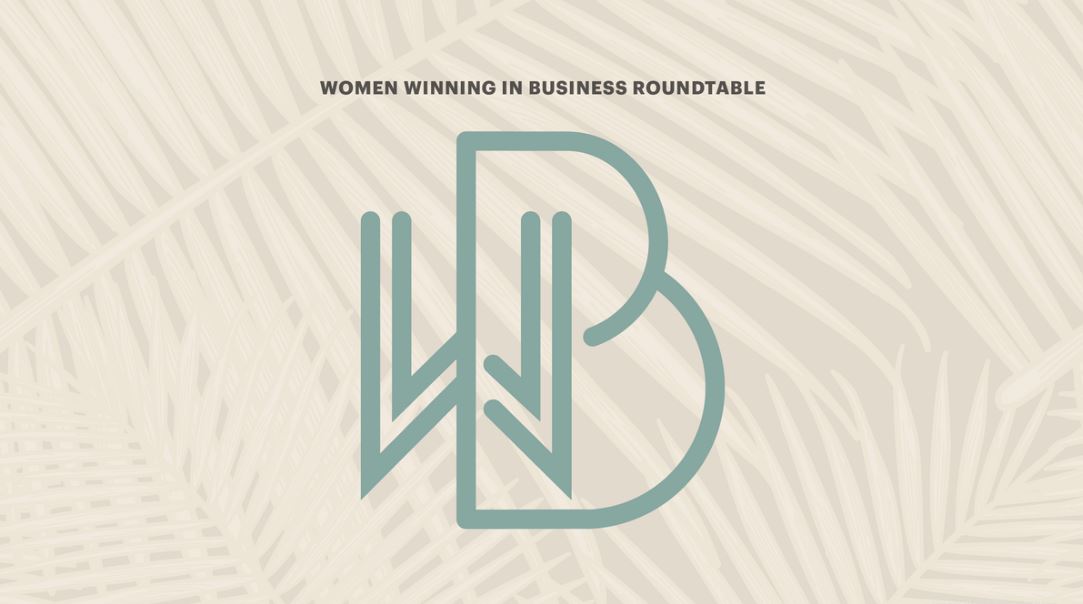By Stephanie Salmons – Reporter, Pacific Business News
Sep 30, 2022
The last few pandemic-driven years have proven to be a challenge for many, but were also marked by accomplishments, support and survival.
So say the five executives who spoke on Pacific Business News’ annual Women Winning in Business panel, which was hosted virtually on Sept. 16.
“I’m glad we’re still alive,” Bonnie Castonguay, co-founder and chief clinical officer of Vivia Cares Inc. and Hookele Home Care, said with a laugh. “With Covid and the health care industry, of course, it was a real journey and it was a team effort.”
She, her partner Dew-Anne Langcaon, and their team were not only able to maintain the business during lockdowns, but also ensure the safety of its clients and staff.
Working before Covid vaccines were readily available was a “very spooky time,” Castonguay said, “but we were able to get through it. … We were fearful that many of our staff would be hesitant because of the fear of Covid, but they’re just marvelous. They’re passionate and they kept on going out. No one ever said no.”
Kyoko Kimura, director of owner relations at Aqua-Aston Hospitality and chair of the Hawaii chapter of Women in Lodging & Tourism, studied to receive her real estate brokers license and was able to teach at Japanese colleges.
In the banking industry, Michelle Bartell, senior vice president, director of community advancement at American Savings Bank, said she was fortunate to participate in ASB’s Paycheck Protection Program loan process, something outside of her normal wheelhouse.
“It was a crash course in being a business relationship manager and figuring out how loans get booked,” she said. “So that was really kind of an eye-opening opportunity to see a different side of the bank. But to know that with every loan that we secured that we were saving businesses and saving jobs, it was really rewarding and made it worthwhile to be working nights and weekends and getting up in the middle of the night so we could be there when the [The U.S. Small Business Administration] first turned the system on.”
For some of the panelists, though, their professional accomplishments turned personal as the pandemic provided more work flexibility, and colleagues helped them through losses in their personal lives.
Danielle Ulmann, vice president and bond manager at Atlas Insurance Agency and president of the National Association of Women in Construction Hawaii’s Board of Directors, navigated the death of a close family member, “right in the heat of the pandemic.”
But being on lockdown and working fully online, and being transparent both with the NAWIC board and her employer, provided the flexibility to spend time with that family member in the months leading up to their death, she said.
“Just working through that pain and that emotion and sitting with it, it was hard. It was really hard. I was doing this all while leading the team at Atlas … and just trying to keep it together,” said Ulmann.
She said she’s better now at asking for help.
“In the past, I’ve had a tendency to just want to take it all on, and honestly, it was too much for me during that time,” Ulmann said. “I really learned a lot about collaboration, a lot about trusting the team, allowing myself to just let go and see how things play out, but … knowing when to step back in again. I’m grateful. I’m very, very grateful for the help I did receive during that time.”
Ulmann’s story resonated with Linda Miki, principal, vice chair and CEO of G70, who said she unexpectedly lost her husband in 2020, followed six months later by the loss of her mother.
“When we were mentioning professional accomplishments, I think part of it is trying to find that work-life balance,” Miki said, tearing up. “… I really took the time to reevaluate my priorities and my time. And work was amazing.”
Miki said the company had just moved into its new office and upgraded its equipment that allowed for mobility and made for an easy transition to work-from-home.
“The construction industry was very busy and I had a lot of hotels going on and they were not stopping, they were continuing construction, they were continuing what needed to get done,” she said.
It was one of the hardest times of her life, she said, but was thankful for the support and being able to get through it.
She had “amazing partners” who supported her team.
“What I saw each and every person do was they brought the best of themselves, in the sense of just helping others,” she said. “Somebody didn’t have a computer or something wasn’t working, or someone wasn’t at the office, but something was delivered. I really saw them come together in a collaboration and teamwork of taking care of the family. … We really operated like a family taking care of each other.”
Meet the panelists:
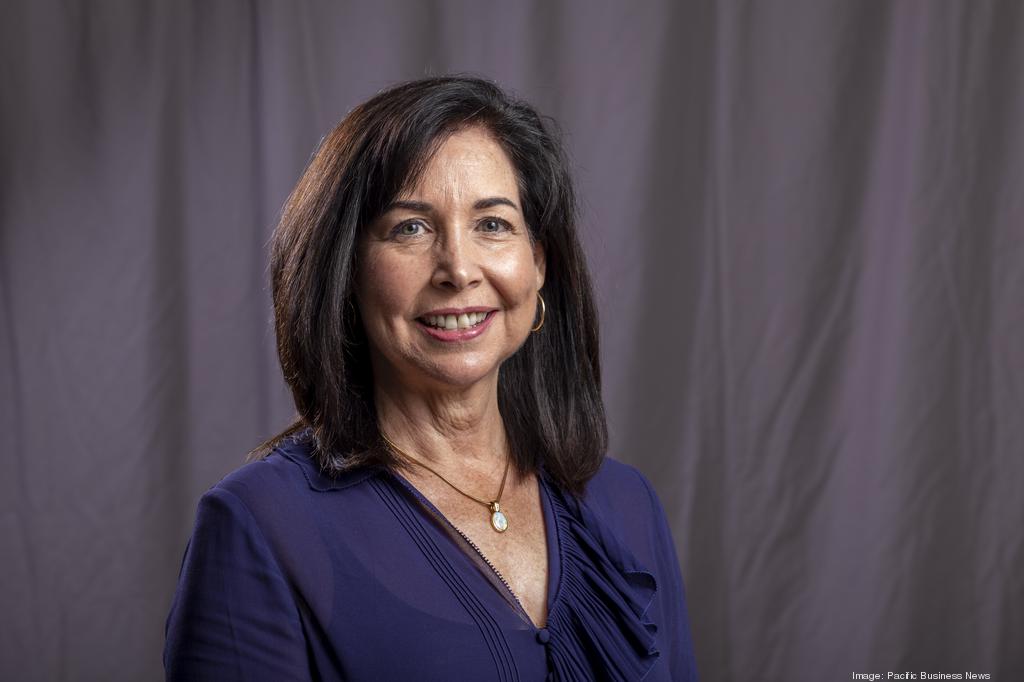
Women Winning In Business Roundtable participant Michelle Bartell, senior vice president, director of community advancement at American Savings Bank, Monday, Sept. 19, 2022, in Honolulu. EUGENE TANNER | PBN
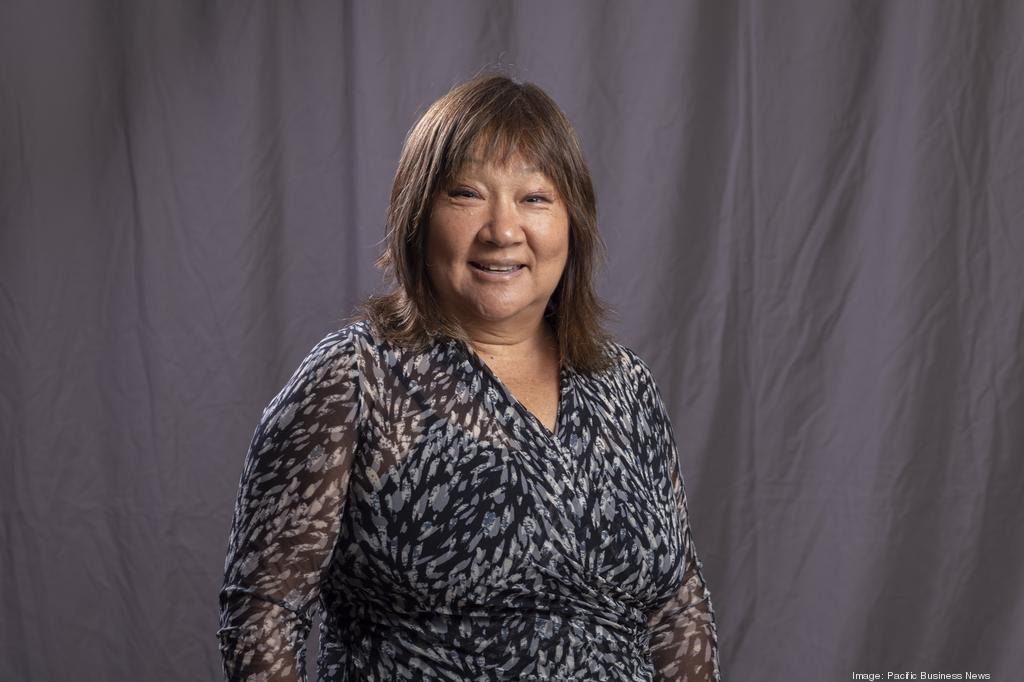
Women Winning In Business Roundtable participant Linda Miki, principal, vice chair and CEO, G70. EUGENE TANNER | PBN
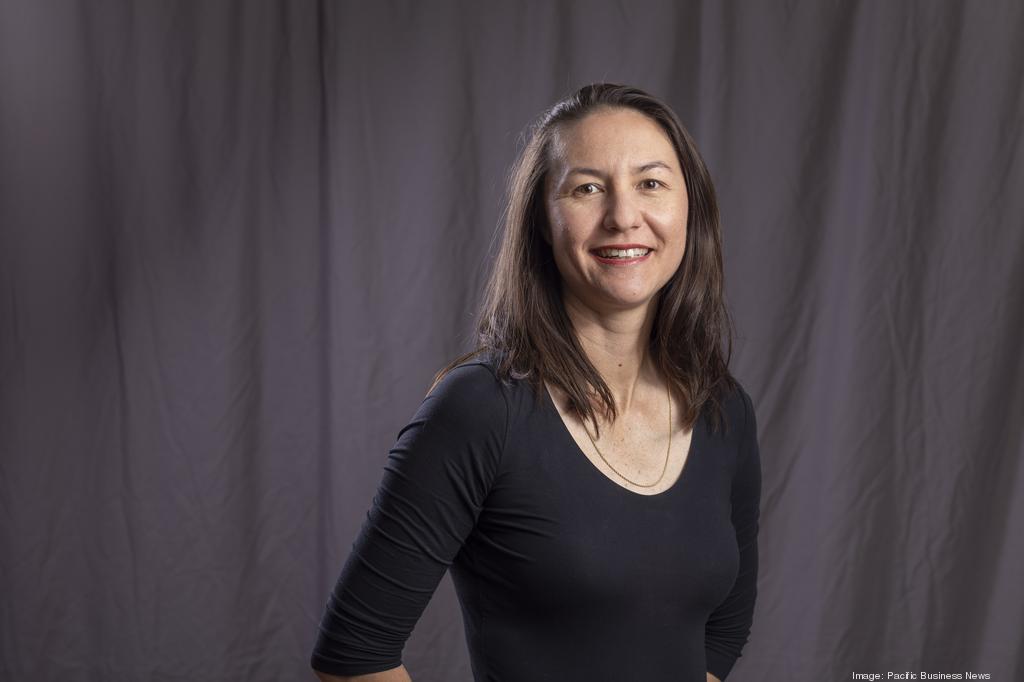
Women Winning In Business Roundtable participant Danielle Ulmann, vice president and bond manager, Atlas Insurance Agency, also board president of the Hawaii Chapter of the National Association of Women in Construction. EUGENE TANNER | PBN
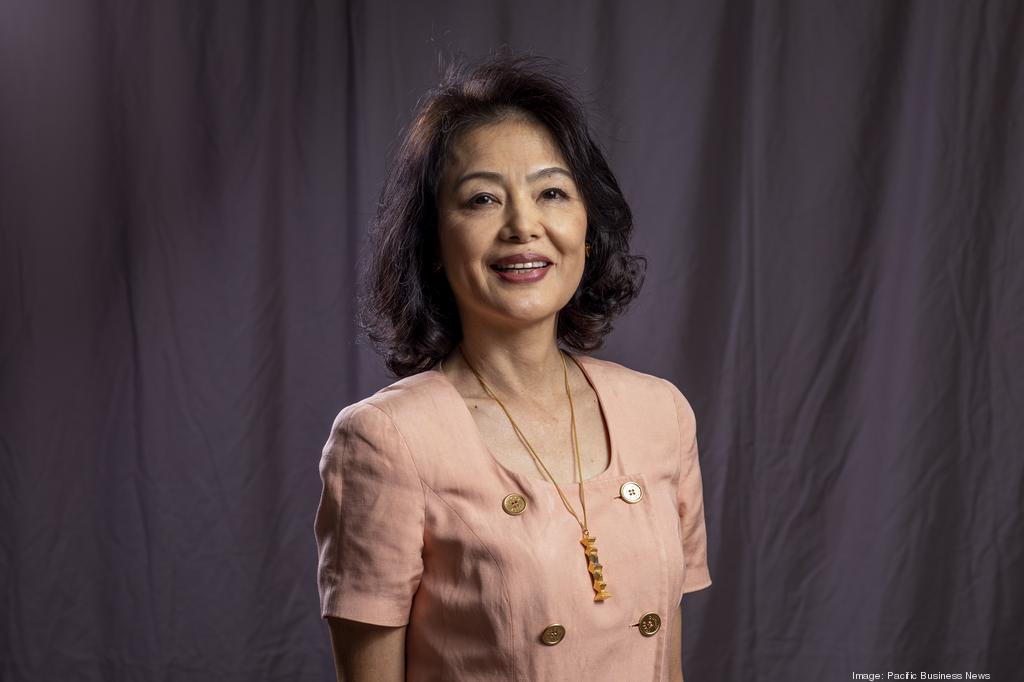
Women Winning In Business Roundtable participant Kyoko Kimura, chair of Women in Lodging & Tourism and director of owner relations at Aqua-Aston. EUGENE TANNER | PBN
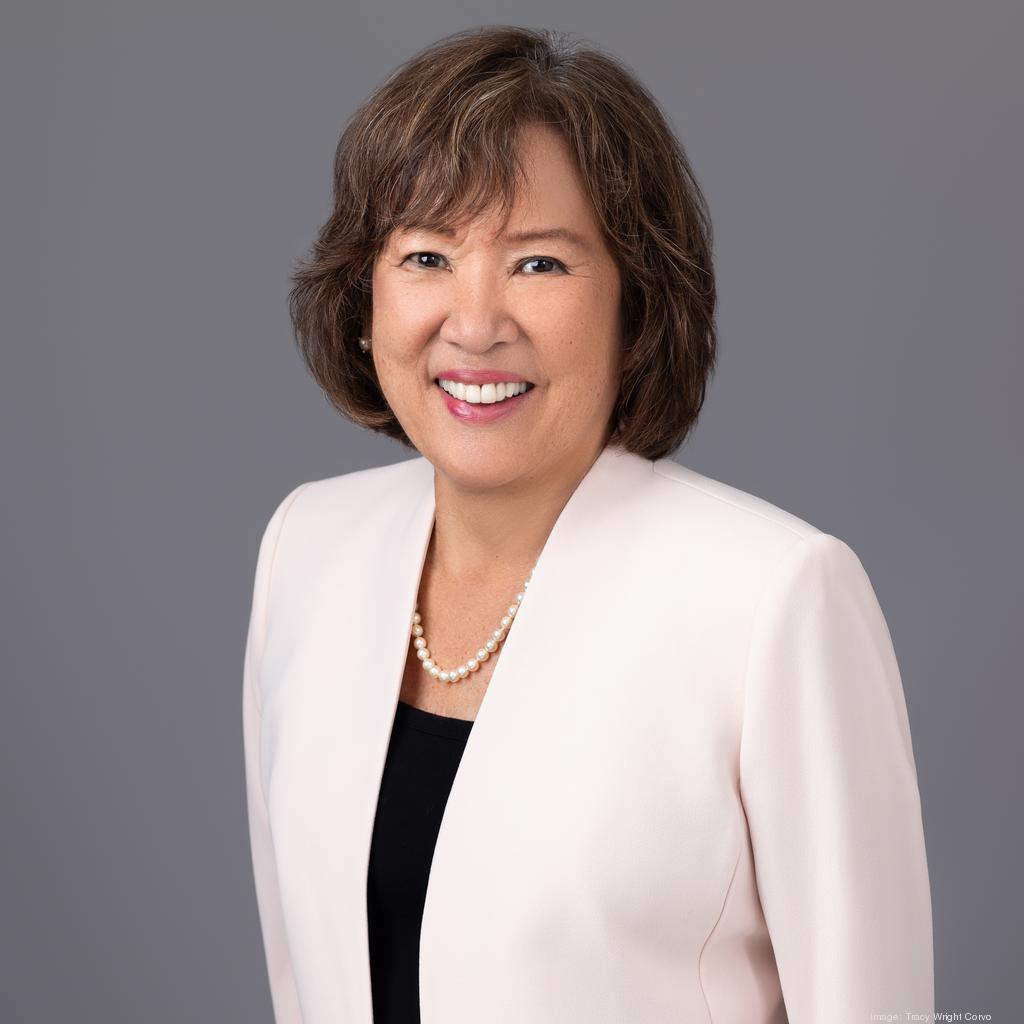
Women Winning In Business Roundtable participant Bonnie Castonguay, co-founder and chief clinical officer of Vivia Cares and Hookele Home Care. TRACY WRIGHT CORVO
The panel’s wide-ranging, hour-long discussion covered a variety of topics, including:
Career development …
Ulmann’s approach to career development is three-pronged: “honesty in the process, vulnerability is a strength, and I know nothing,” she said.
“Those three mantras really hit home during the pandemic,” she said. “I got even more honest with myself than I’ve been in the past and I’ve always been my biggest critic, I really have. With what I could and could not do, it was a very humbling experience. … I have a tendency to want to help, to be everything to everyone when I can, but it’s impossible. It’s effectively impossible, and you lose the value in those precious moments and in what matters.”
Life is precious and time is limited, Ulmann said.
“You can only do so much to make the most of it,” she continued. “Really immerse yourself into your commitments. Throw yourself into what you love. There’s a reason why I chose this career — maybe I didn’t know when I got out of college, but I know it now.”
Coming out of the pandemic, Ulmann said, has “solidified my commitments.” She is better at setting boundaries and prioritizing, “and it comes back to being honest, vulnerable and being humbled.”
Kimura agreed and said prior to the pandemic she rarely said ‘no’ to anything, but after the pandemic, “you learned that your time is limited and you have to prioritize.”
For Castonguay, finding mentorship during different phases of one’s career is vital.
“Starting a business, you’re going, ‘well, I don’t know how to do this,’” she said. “My greatest mentor was someone who had a business, and so learning the ups and downs of a business, and how to maneuver around that and then knowing again … what are your strengths, and what are your limitations and understanding that. And then finding individuals or opportunities to learn such [things] as business development.”
Castonguay said she learned from a mentor to set short-term goals — with a quarterly time frame rather than three years, for example — and to set goals within that shorter period, “then be very tactical about it.”
Miki also touted the importance of mentorship.
“I didn’t really have a career strategy when I got into the profession,” she said. “I was just trying to learn. … I loved problem solving and there was a lot of problem solving in architecture and design, but coming into the business, [it was] learning how to run a business and really understanding the legal issues, finding office space, doing a lot of things they don’t teach you in architecture school, but actually, you’re sort of on-the-job training and learning it.
“And, really, I learned from my mentors. I had a number of mentors, and each one had different kinds of gifts that they brought and they taught me different things.”
Bartell said she, too, didn’t have a career development plan in place.
“I was an English major and my parents were like, ‘what is she going to do with that?’” she said. “So the path was not really clear for me, but what I did try to do was to find people and companies whose values sort of aligned with my own, and then you just sort of take all the opportunities [you can].
“A career is very much an iterative process; you’re scaffolding, just like everything else you learn in life,” Bartell continued. “Each job sort of prepares you for the next one, and when I look back, I can see somewhat of a progression that makes sense. But at the time, when you’re living in it, it really is sort of challenging to know where you’re going with it.”
Bartell said, too, that some of the companies she previously worked for had leadership development programs in place and was “really fortunate” to participate in those.
The importance of mentorship …
Kimura spoke of her mentor, a woman who owns a large transportation shipping company with 5,000 employees, “but she started with one truck.”
“She doesn’t even have a high school degree, so you can tell how challenging it is in the society of men in Japan to succeed without any support or degree background or [as a] woman. But what I really respect [about] her, is she was always herself. She didn’t try to pretend [to be] bigger than she is, or she didn’t try to be a man. … She didn’t even sacrifice her personal life.”
Ulmann said having a mentor is essential.
“When I was younger, I had a tendency to almost put them on a pedestal, and when you do that, or when I did that, you kind of exalt their every trait and you sort of mimic, you act,” Ulmann said.
But when learning from mentors what to do, “you can also learn what not to do. And so I found that my best mentors were the ones who were completely honest with their shortcomings and unafraid of being themselves.”
What makes an effective leader…
“I really think the most effective leaders are the ones [who] are truly authentic, who really care, who are full of integrity and who do a lot of listening,” Bartell said.
“Being in the positions that we’re in as women, and being comfortable being women — we don’t have to act like men,” Miki said. “ … The best career development that I’ve ever done for myself is to be comfortable being myself and not having to lead like how others lead, because I’ve had great leaders as examples and mentors.”
Castonguay said active listening is important in leadership.
“By actively listening to our staff, any part of the team, sometimes the littlest, craziest things come up and that’s an idea,” she said.
Another important leadership trait?
“Hiring people who are smarter and more talented than you are, and taking away that ego,” Castonguay said. “And then, once you’re starting to mentor them and coach them into a leadership role, stand back. They may fail. That’s OK. But stand back and they will start to rise.”
Kimura said showing employees why they are doing a task can make a difference.
For example, she said clearing tables because you’re told to do so is different than knowing the hotel’s goal is to provide a memorable experience to guests.
“So your job may be just to clear the table, but you’re going to do it with more attention to the guests, maybe do it more efficiently so that the next guest is not going to wait,” she explained. “I think that makes a big difference [for] leadership to show why you are doing [your work].”
The sacrifices made for their careers — and if they would make those sacrifices again …
Born and raised in Hawaii, Ulmann said the biggest sacrifice she has made has been living most of her adult life in the Islands.
“I went to school in California for a bit, too. I’ve had the opportunities to live outside the country, but I’ve chosen to stay here and … earlier in my career, it was something that I had to really come to terms with. And I’m OK, I’m very blessed. I’m very fortunate, and given the chance, honestly, I don’t know if I would have stayed in Hawaii for the majority of my career, but I definitely don’t regret it, and that much I know.
“With where I’m at and what I’ve been able to accomplish and the many wonderful relationships I’ve cultivated along the way, there really is a reason I’ve stayed.”
Kimura, who is originally from Japan, said she broke up with a boyfriend to transfer to Hawaii.
“Would I do that again? Definitely,” she said, garnering laughs from the other panelists. “For the young ladies out there, if your boyfriend tells you not to do what you want to do, just dump him.”
Castonguay, who has two daughters, said if she had to do it all again, she would want to better her work-life balance.
Health care careers are about “career climbing” and proving yourself, she said, adding that when she was in health care administration, she also decided to get a master’s degree.
“My daughter said, ‘Mom, the only thing we see is the top of your head in those books’ for the longest time,” Castonguay recalled. “So I think it’s work balance and knowing where the priorities are because the children grow up too fast, much too fast.”
Miki said when looking back on her career, she also would have liked a better work balance.
“We spent a lot of long hours working,” she said. “One of the things I wouldn’t do again is spend as much time as I did at work. Part of it, I believe, is that the work will always be there, but I think I’m learning now in my older years about prioritization of my time.”
Bartell said she was able to take nearly three years off work following the birth of her second child.
The sacrifice of not working did set her “a little behind” in her career, “but to be really honest, I would do that all over again in a heartbeat.
“I’m really fortunate that I was in a position to be able to do that,” she said. “Money was really tight for that almost three years, but I don’t regret that.”
The advice they would give their 20-year-old self …
Trust God, Miki said.
“It’s way easier when God leads, as opposed to me trying to do it on my own,” she said. “And that you don’t have to be perfect, and so you can take time to smell the roses and savor the moment.”
Kimura would tell her 20-year-old self to think hard about what she wants to do or be, “and you have two more years to work on it.”
For Ulmann, “constraints create freedom.”
“So that would be the advice I’d give my younger self,” she said. “I don’t have to make that decision for the rest of my life and I can change course and I can decide. But the irony, now, is I’ve been continuing the course of my career since college and, quite honestly, I’m happier than ever.”
Bartell said she’d give her younger self the advice she has given her own 20-year-old daughter.
“Just keep moving forward and the path will reveal itself,” she said. “It’s partly because I think in your 20s, it’s so hard. You have so much idealism and passion, and kind of a general sense of how you want to make your impact in the world, but it’s so hard to figure out how you’re going to get there. And I think for me, that did cause me to really kind of second guess a lot of what I was doing. … You don’t have to figure it all out at 20 and one decision is not going to chart the course of your life. It’s not set in stone.”
“I totally agree — and have fun,” Castonguay responded. “Dream big and do things and take some risks.”
And anticipation and concerns for the year ahead …
In the year ahead, Kimura said she’s most worried about workforce development within her industry, a sentiment shared by Ulmann.
“I think looking ahead, not just for next year, but in the next three-to-five year cycle, at least in my industry and the subset of both the insurance and the construction industry, there is an experience gap, and it’s not just locally,” Ulmann said.
But the pandemic has bred creativity and she’s excited to see that evolution and change — as well as “our continual support of one another.”
Miki said she’s excited about the growing openness to more collaboration and for community and business leaders coming together to find solutions to larger issues.
Bartell echoed those sentiments but said, too, that she’s concerned about the impacts to the community when federal support goes by the wayside; hard times may still be ahead for many people.
“But like Linda, I really see that there is this new groundswell of desire to really focus on some of our core problems, like affordable housing, and to figure out how we come together to each do our own part in the solution of it,” she said. “ … It’s like the pandemic melted away all of the things that were distracting for us in some ways, so that we could really focus on what the true problems are and how do we really solve them together.”
Castonguay agreed.
“Coming out of this pandemic and the world opening up again, it’s been quite a journey, but I think the community and everyone else has learned from this,” she said.
“I think the collaborations and the partnerships have grown for that, because we all face the challenges of lack of staffing, the challenges of lack of equipment, and you see everybody … who were once competitors, coming together and helping each other out. I think that will transcend and we will continue to be that way. That’s my hope, because I think economically, we may be facing some hard times, so we’re going to have to pull together and come through this. But I believe, with excitement, that we will.”
